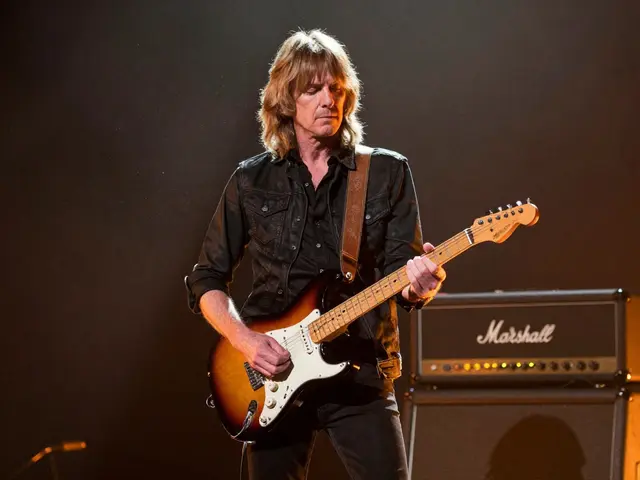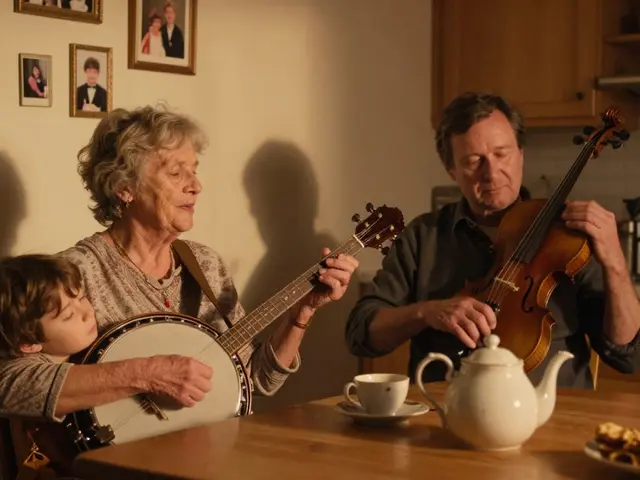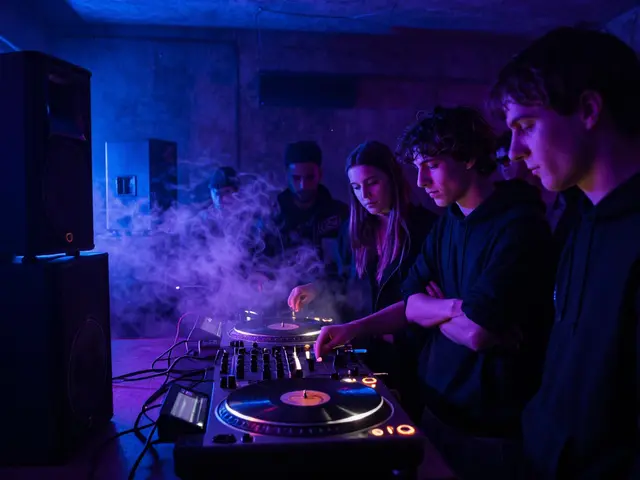The Historical Roots of Hip Hop and Its Psychological Undertones
Hip hop has always been more than just a genre of music; it's a cultural movement that originated in the 1970s in the Bronx, New York City, from the expressions of marginalized communities. Its inception was rooted in the struggle, resilience, and the lived experiences of African Americans, Latino Americans, and Caribbean Americans. This eclectic mix of sounds, styles, and stories provided a platform for self-expression and a voice for those often unheard in mainstream media. But besides its rhythmic beats and poetic lyrics, hip hop carved out a space where mental health struggles could be openly discussed, breaking away from societal taboos and fostering a community of empathy and understanding.
Considering its beginnings, it's no surprise that hip hop has a profound psychological impact on both artists and listeners. The genre has been instrumental in bringing issues of poverty, injustice, and mental health to the forefront. Artists like Tupac Shakur and Notorious B.I.G painted vivid pictures of their inner and outer struggles through their music, offering solace to those with similar experiences. It's this authenticity and relatability that make hip hop a powerful tool for mental health advocacy.
Scientific Perspectives on Hip Hop and Mental Health
Recent studies have begun to uncover the tangible benefits of hip hop on mental health. Researchers have found that engaging with hip hop can significantly impact an individual's psychological well-being. One study highlights how hip hop acts as a form of music therapy, offering listeners a way to cope with stress, depression, and anxiety. The beats, rhythms, and narratives found in hip hop music have been shown to facilitate a cathartic emotional release, enabling listeners to process difficult emotions and experiences.
Moreover, the element of storytelling within hip hop provides a unique avenue for artists and listeners to confront and articulate their mental health challenges. In doing so, it fosters a sense of connection and reduces feelings of isolation. This therapeutic aspect of hip hop is so significant that psychologists and therapists have started incorporating hip hop into their treatment plans, recognizing the genre's ability to reach and resonate with individuals, particularly youth, on a deep level.
Case Studies: Hip Hop as a Therapeutic Medium
There are countless testimonies and case studies highlighting hip hop's therapeutic benefits. One notable example is the work of Dr. Akeem Sule and Dr. Becky Inkster, who founded 'Hip Hop Psych,' an initiative that uses hip hop as a medium to educate and heal. They argue that the raw, unfiltered narratives expressed in hip hop music make it an effective tool for psychoeducation and the destigmatization of mental illness. Through workshops and seminars, 'Hip Hop Psych' demonstrates how hip hop can be utilized to empower individuals, promote mental health awareness, and facilitate recovery.
Another case study involves a youth program in Los Angeles that integrates hip hop into its curriculum to engage at-risk teenagers. This program uses hip hop as a form of expressive therapy, allowing participants to channel their emotions and experiences into creative expression. The positive outcomes of such initiatives are supported by mental health professionals and educators alike, who observe significant improvements in the participants' self-esteem, coping mechanisms, and overall mental well-being.
Hip Hop's Role in Mental Health Advocacy and Stigma Reduction
The global reach of hip hop has turned it into a powerful platform for mental health advocacy. Artists who share their personal struggles with mental health through their music contribute to a larger conversation, challenging the stigma and encouraging open dialogue. This normalization of mental health discussions within the hip hop community has had a ripple effect, influencing broader societal perceptions and attitudes towards mental illness.
Furthermore, hip hop provides a unique cultural lens through which mental health issues can be explored and understood. It offers perspectives that are often underrepresented in mainstream mental health discussions, thereby enriching the narrative and paving the way for more inclusive and diverse mental health support systems. This has been particularly impactful in communities of color, where mental health stigmas are prevalent, and access to care is often limited. Through hip hop, these communities are finding a voice and a means to address mental health on their own terms.
Practical Tips for Incorporating Hip Hop into Mental Health Practices
Given the undeniable connection between hip hop and mental wellness, there are several ways individuals can incorporate hip hop into their mental health practices. Creating a personalized hip hop playlist that resonates with one's emotions and experiences can be a powerful self-care tool. Listening to hip hop can also be a form of mindfulness, allowing individuals to fully immerse themselves in the music and momentarily detach from their stresses.
For mental health professionals, integrating hip hop into therapy sessions can be an innovative way to engage with clients, especially younger ones who might be more receptive to non-traditional methods of therapy. Moreover, attending hip hop events or participating in hip hop-based workshops can provide a sense of community and belonging, which are crucial for mental well-being. Ultimately, whether as a listener, creator, or practitioner, exploring the intertwining worlds of hip hop and mental health can lead to profound insights and healing.






